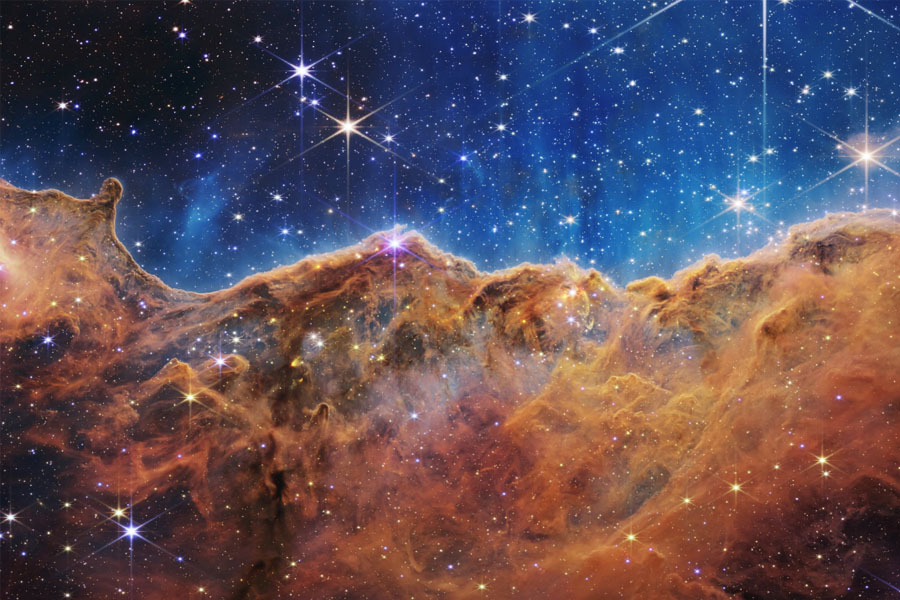
The AI race is in full swing as numerous big tech companies are trying to develop super-advanced artificial intelligence. Meanwhile, AI has already shown wonders, doing something that was once deemed impossible. But let’s be honest, they have failed at doing a couple of things, like being original. However, Polymathic AI promises to be “built differently” than other LLMs as it hopes to build AI models specifically geared for scientific application.
Polymathic AI: An Overview
As mentioned before, most AI models lack originality. They are predominantly constructed from billions of diverse parameters based on some sort of large language models (LLMs). AIs exhibit unoriginality in the sense that their responses are purely derivative.
For the uninitiated, OpenAI‘s ChatGPT and other LLMs can feel like an all-knowing, highly intelligent tool. But they are simply prediction machines after all. For the same reason, they are super good at generating texts but not so much at doing difficult mathematical calculations. This is primarily because they are predictive machines, and you cannot do complex mathematical calculations simply by making predictions.
Announcing:
*The Polymathic AI Initiative*
We are researching a new class of foundation models for scientific *data*, developing models that share scientific concepts across disciplines.
Site: https://t.co/C2Qsi59HzI
News: https://t.co/JomPjdIJAG
Thread: 👇 pic.twitter.com/pYvM18md4B— PolymathicAI (@PolymathicAI) October 9, 2023
However, an international group of scientists have collaborated to initiate a new research project, namely Polymathic AI. This project will utilize the same technology as ChatGPT to construct an AI, but one that’s specifically designed for scientific discoveries.
Contrary to ChatGPT, which is mostly about text generation, Polymathic AI will concentrate on scientific discoveries through training on numerical data and numerous physics simulations.
Polymath of Polymathic AI

In case you didn’t know, a polymath is someone with intricate knowledge in different fields. For instance, Leonardo Da Vinci, Aristotle, and Benjamin Franklin are some of the well-renowned polymaths. Through Polymathic AI, researchers hope to understand the most unknown phenomenon of the universe.
From supergiant stars, dark matter, and dark energy to studying the smallest known entities like the fundamental particles and their specific properties. Thus increasing the scope of knowledge and making science more accessible.
“Polymathic AI can show us commonalities and connections between different fields that might have been missed,”
The Polymathic AI team, comprised of experts in physics, astrophysics, mathematics, artificial intelligence, and neuroscience, will actively engage in future groundbreaking projects. This initiative involves harnessing knowledge from various sources within physics and astrophysics, with future expansion planned into fields like chemistry and genomics as stated by its creators. The Polymathic AI team expects that its collective expertise will drive the learning process and enable the application of its multidisciplinary prowess to tackle a diverse array of scientific challenges.
What else?
Furthermore, Polymathic AI distinguishes itself from ChatGPT through a crucial enhancement: a focus on precision. Numerical data is treated as authentic numbers, not mere characters, and the project utilizes real scientific datasets that encapsulate the underlying physics of the universe.
This emphasis on precision aligns with Polymathic AI’s commitment to transparency and openness. The team envisions making all their work publicly accessible, aiming to democratize AI for scientific research. Ultimately, the goal is to provide the scientific community with a pre-trained model that can enhance analyses across diverse problem areas and domains, marking a significant stride toward expanding the application of AI in scientific discovery.
- Meanwhile, check our AYANEO Pocket Air review

















![Best Ultrabooks To Buy in Nepal 2024 [Updated] Best Ultrabook Laptops in Nepal 2023 - June Update](https://cdn.gadgetbytenepal.com/wp-content/uploads/2023/04/Best-Ultrabook-Laptops-in-Nepal-2023-June-Update.jpg)
![Best Gaming Laptops in Nepal 2024 [Updated] Best Gaming Laptops in Nepal 2023 - June Update](https://cdn.gadgetbytenepal.com/wp-content/uploads/2023/04/Best-Gaming-Laptops-in-Nepal-2023-June-Update.jpg)

![Best Mobile Phones Under Rs. 15,000 in Nepal [Updated] Best Phones Under 15000 in Nepal 2024 Budget Smartphones Cheap Affordable](https://cdn.gadgetbytenepal.com/wp-content/uploads/2024/03/Best-Phones-Under-15000-in-Nepal-2024.jpg)
![Best Mobile Phones Under Rs. 20,000 in Nepal [Updated] Best Mobile Phones Under NPR 20000 in Nepal 2023 Updated Samsung Xiaomi Redmi POCO Realme Narzo Benco](https://cdn.gadgetbytenepal.com/wp-content/uploads/2024/01/Best-Phones-Under-20000-in-Nepal-2024.jpg)
![Best Mobile Phones Under Rs. 30,000 in Nepal [Updated]](https://cdn.gadgetbytenepal.com/wp-content/uploads/2023/12/Best-Phones-Under-30000-in-Nepal-2024.jpg)
![Best Mobile Phones Under Rs. 40,000 in Nepal [Updated] Best Phones Under 40000 in Nepal 2024 Smartphones Mobile Midrange](https://cdn.gadgetbytenepal.com/wp-content/uploads/2024/02/Best-Phones-Under-40000-in-Nepal-2024.jpg)
![Best Mobile Phones Under Rs. 50,000 in Nepal [Updated] Best Phones Under 50000 in Nepal 2024 Smartphones Midrange](https://cdn.gadgetbytenepal.com/wp-content/uploads/2024/02/Best-Phones-Under-50000-in-Nepal-2024.jpg)
![Best Flagship Smartphones To Buy In Nepal [Updated] Best Smartphones in Nepal 2024 Flagship Premium Samsung Apple iPhone Xiaomi OnePlus Honor](https://cdn.gadgetbytenepal.com/wp-content/uploads/2023/09/Best-Smartphones-in-Nepal-2024.jpg)